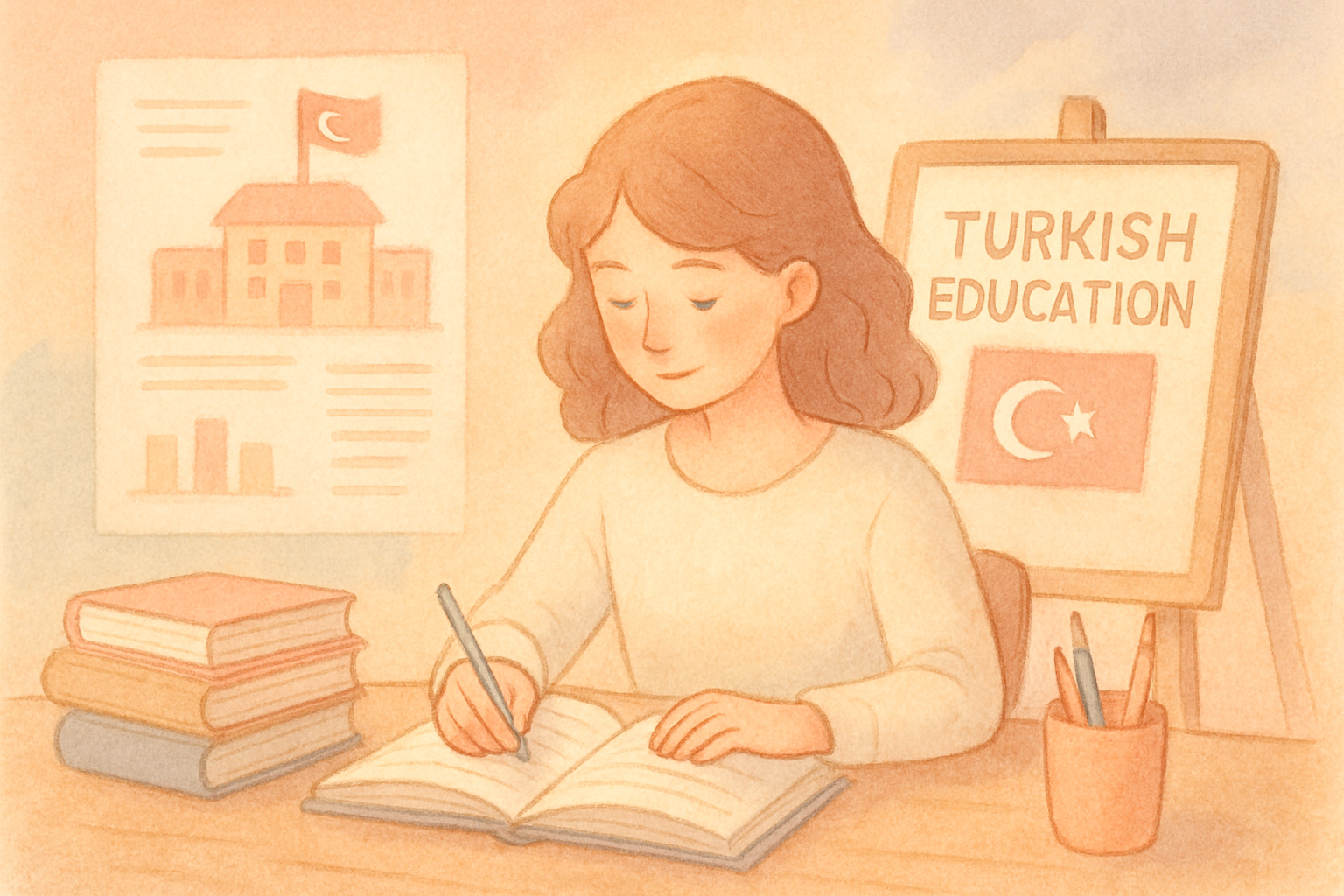Understanding Turkish School Curriculum

Moving to Türkiye provides families with exciting adventures, but it also raises important questions about your child’s education. Expat parents often wonder how the Turkish school curriculum works, what subjects are taught, and how it compares to education systems abroad. Understanding Turkish schools empowers you to support your child’s learning journey, help them settle in, and make confident choices about their future.
1. The Turkish School System at a Glance
Türkiye’s education system serves almost 20 million students and follows a national curriculum set by the Ministry of National Education (MEB). The structure is straightforward:
- Primary School (İlkokul): 4 years (ages 6-9)
- Middle School (Ortaokul): 4 years (ages 10-13)
- High School (Lise): 4 years (ages 14-17/18)
Each stage prepares students for the next—primary lays the foundation, middle school encourages critical thinking, and high school offers pathways for university or the job market.
Turkish public schools are free and teach in Turkish, but international schools and some private schools offer instruction in other languages such as English, French, or German.
2. Core Curriculum Highlights
What will your children actually study? The Turkish school curriculum blends academic skills with social and ethical values, promoting well-rounded development.
- Language and Literature: Turkish language is at the heart of education, with reading, writing, comprehension, and literature as consistent pillars.
- Mathematics: Core topics mirror those in other countries—arithmetic, geometry, algebra, and, in upper years, trigonometry.
- Science: From a young age, students explore life sciences, biology, chemistry, and physics, with increasing complexity over the years.
- Social Studies: History, geography, and civics foster national identity and global awareness.
- Foreign Languages: English starts in the early grades. Depending on the school, German, French, or Arabic may also be available.
- Technology and IT: Digital skills are integrated from primary onwards, teaching children how to use computers and navigate the internet safely.
- Religious Culture and Moral Knowledge: This subject offers insights into religion and ethics, although alternative curricula can be requested by non-Muslim students.
Electives enrich the experience and allow students to discover talents in art, music, or sports. For expat children, this balance helps them blend global perspectives with an appreciation for Turkish values.
3. Assessment and Progression
Understanding how schools measure progress helps you guide your child more effectively. Continuous monitoring and regular exams are part of Turkish schooling.
- Regular Assessments: Quizzes, homework, and class participation count toward final grades in every subject.
- Semester Exams: Written tests occur twice a year, covering each subject’s major concepts.
- Project Work: Especially in middle and high school, projects develop research and presentation skills.
- Transition Exams: Entrance exams are required for competitive high schools and universities.
Clear grading systems help parents spot strengths and areas for improvement quickly. Open communication with teachers allows for timely interventions, ensuring expat children stay engaged and motivated.
4. Adapting to Turkish School Life
Moving into a new school community demands flexibility, especially with language and cultural adjustments. The Turkish curriculum supports newcomers in practical ways.
- Language Support Programs: Many schools offer intensive Turkish classes or pull-out sessions for non-native speakers.
- Guidance Counselors: Advisors help students adapt socially and emotionally, offering support in English at international schools.
- Parent-Teacher Associations: Active PTAs provide resources, cultural orientation, and translation help for families.
- Extracurricular Clubs: Sports teams and arts clubs create quick paths to friendships and community involvement.
For example, an expat child who joins a school’s drama club quickly improves Turkish fluency and makes friends, helping them feel at home. Asking about such opportunities enables smoother transitions and boosts confidence.
5. Benefits of the Turkish Educational Experience
Choosing Turkish schools exposes your child to a rich, multicultural learning setting. Practical advantages include:
- Building fluency in Turkish, expanding future study and work choices
- Enjoying a rigorous blend of science, maths, humanities, and arts
- Developing cross-cultural communication skills by mixing with local and international students
- Learning empathy, adaptability, and resilience from living abroad
- Access to internationally recognized qualifications through some high schools and private colleges
For most expat families in Türkiye, understanding the local curriculum brings peace of mind. By knowing what to expect and exploring your options, you will support your child’s academic progress and help them thrive in their new home. Engaged parents and excited students often discover that adapting to Turkish school life is a rewarding chapter in their world adventure.
